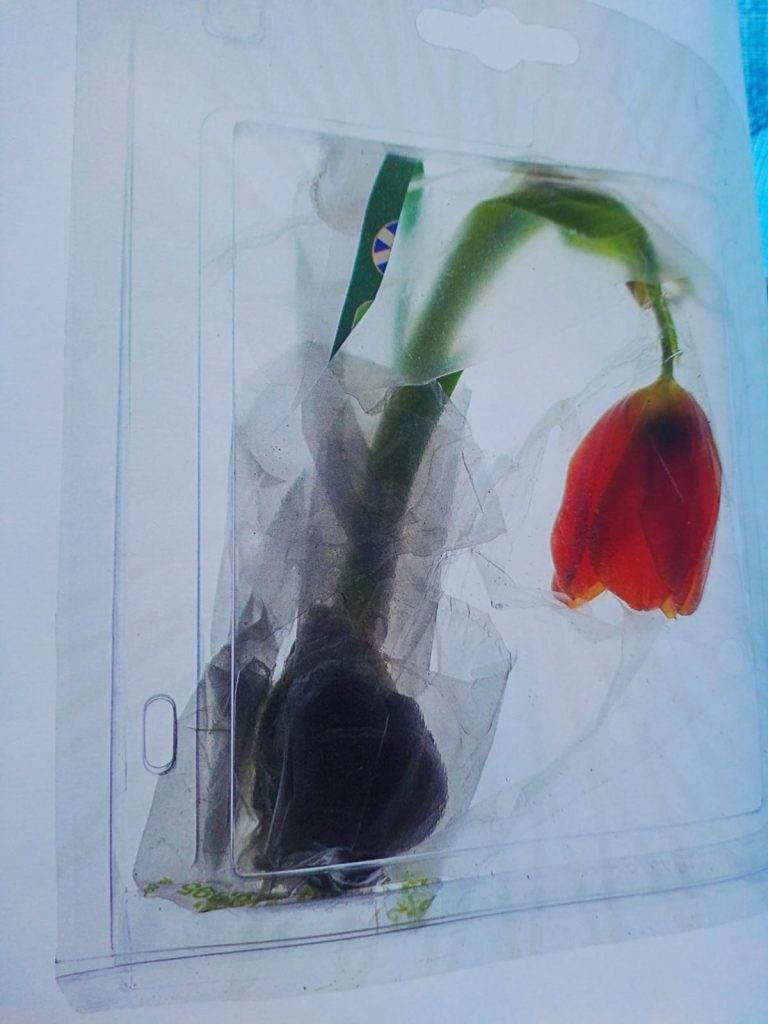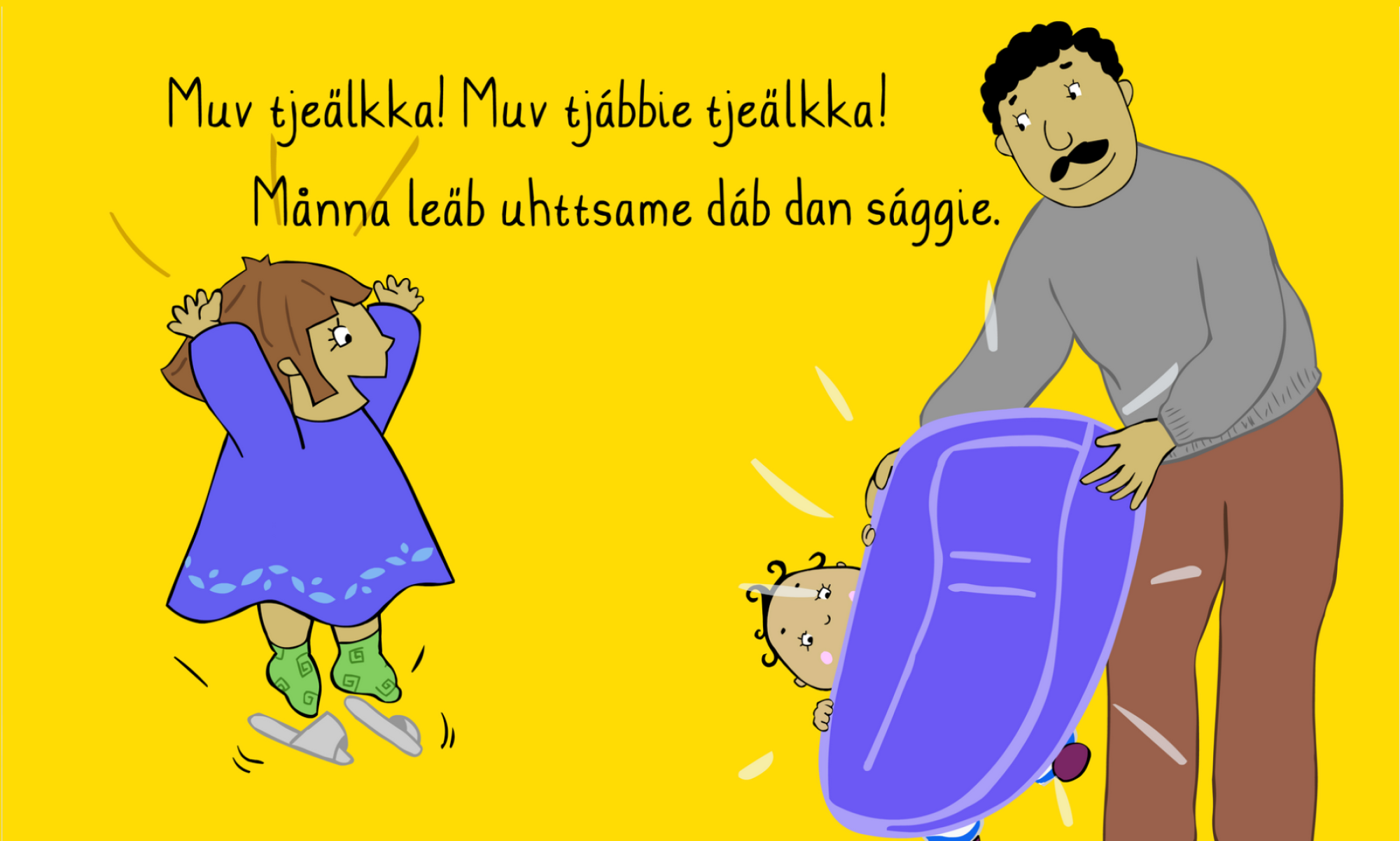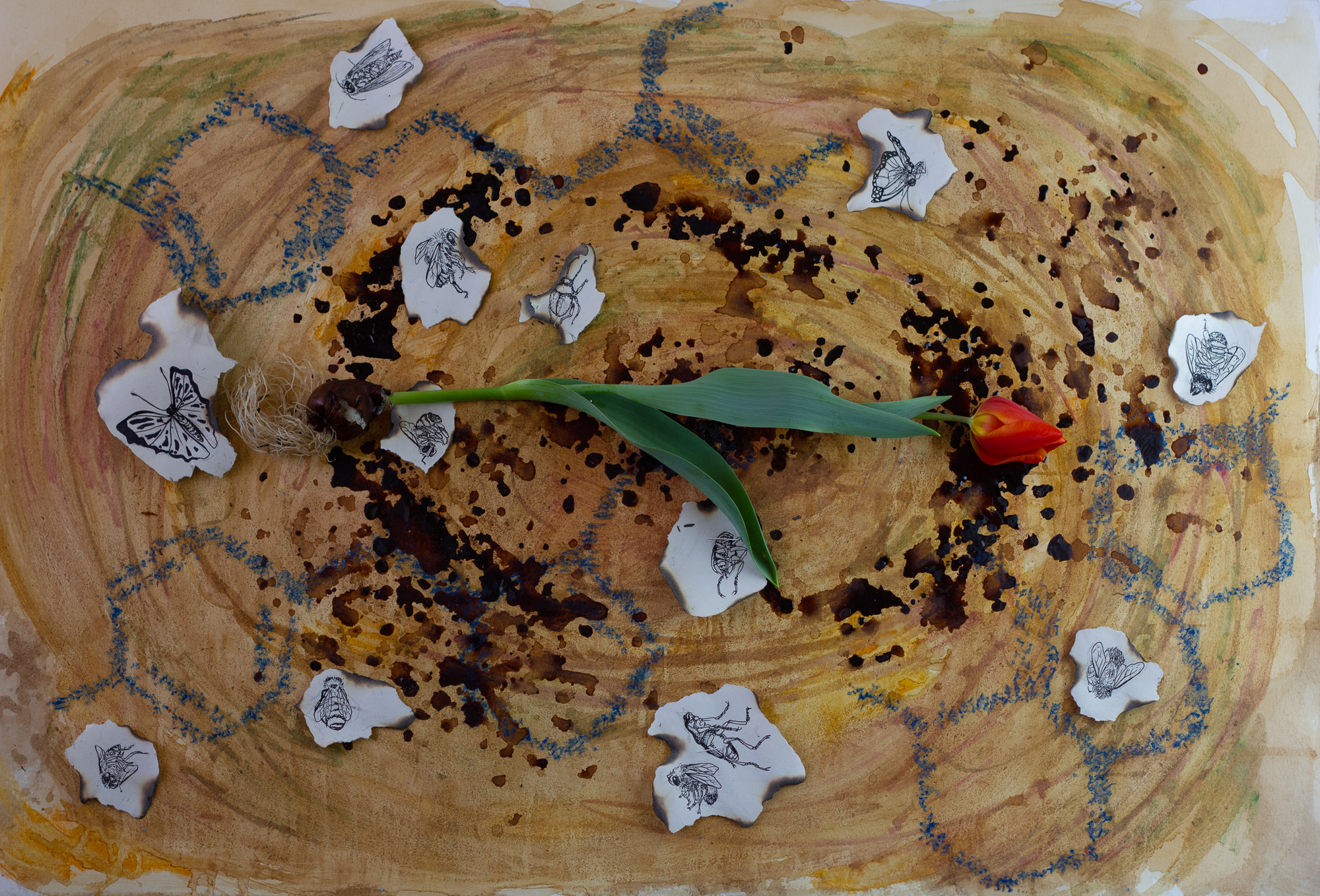Tulip Series is our response to the accelerating climate crisis and environmental disasters we have now come to expect as parts of our daily lives.
Tulip Series was exhibited at Green Peace Group Exhibition at Christ’s Pieces in Cambridge, autumn 2019.
Climate crisis
Plastics
Microplastics and nanoplastics are emerging concerns of global proportions. They are polluting water and land. In other words, they have devastating impacts on marine life as well as agriculture. Estimates suggest that between 110 000 and 730 000 ton of microplastics are transferred to agricultural soils per year in Europe and North America. Data from Nordic countries states that most of all the microplastic waste in Western societies end up in the sludge in wastewater treatment plants, polluting soil and disrupting agroecosystem.
Sequence 3. “Wrapturous”

Wildfire
The deadly fires in summer of 2018 in Greece and the extreme wildfires in Sweden and elsewhere in Europe were a strong reminder that global warming is affecting us in the parts of the world where we usually do not see our ecological footprint on the climate crisis. The latest report by the UN Intergovernmental Panel on Climate Change (IPCC) strengthens the previous warning that the time margins for keeping the global temperature from rising above 1.5 °C is rapidly shrinking. Beyond this increase point, even half a degree will worsen the effects and ferocity of wildfires. This will, not only lead to rising sea levels, water scarcity but also extinction of species and extreme weather. Moreover, this will cause further environmental displacement and force people to give up their homes.
Sequence 2. “Airborn”

Pesticides
In May 2018 the EU commission completely banned the outdoor use of several neonicotinoids. Neonicotinoids are pesticides used in plant protection products to control insects harming crops and flowers. These pesticides are taken up by the plant and transported throughout its whole system, its leaves, flowers, roots and stems, as well as pollen and nectar. This means that the neonicotinoids are transferred to pollinating insects. Among other things they affect the central nervous system of insects, leading to eventual paralysis and death. Neonicotinoids are one of the factors behind the major insect extinction observed in the past years. Studies from the UK show that even seeds and flowers labelled as “bee-friendly” in major garden centres contain high levels of these harmful pesticides.




